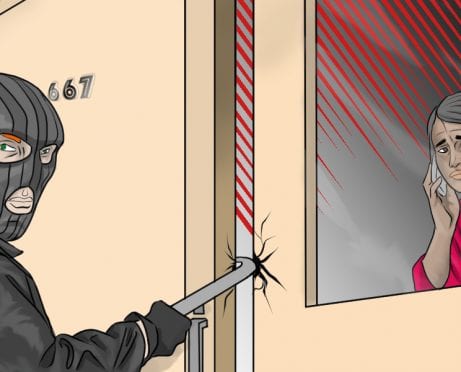
 Unlike many that I know, I am actually excited to write out my rent check on the first of each month. No, my landlord has not hypnotized me. I am so happy because this is the lowest amount of money I’ve ever paid for rent.
Unlike many that I know, I am actually excited to write out my rent check on the first of each month. No, my landlord has not hypnotized me. I am so happy because this is the lowest amount of money I’ve ever paid for rent.
We’ve lived in high-rise buildings, single family condos, townhouses, and traditional 3+1 buildings. And each time we found our new home, we dealt with some of the pitfalls that come with renting. But nothing irks me more than when a landlord raises the rent.
However, now that we’re settled in Wyoming for the time being, we decided we wanted a different approach. Instead of waiting to see how much our monthly rental cost was going to increase, we were proactive and actually renegotiated our lease down from $1,350 a month to $1,050 a month! That’s a $300 savings!
How did we do it? Simple! We used these five strategies to renegotiate our lease for less.
Get Renter’s Insurance From a Top Provider — Free Quote Here >>
1. Do Your Research
Our area has been hit very hard by the downturn in the energy sector. From March on, our community became a ghost town, and news reports aren’t making it look like this area will revitalize soon.
That’s good news for us because we could use that lack of business optimism as a reason why a landlord would want us to stay.
We also looked at housing options in our town. Our neighborhood is considered to be upper-middle class, so we knew that realistically, there were cheaper options out there. We brought pamphlets and listings to the negotiating table to show we were serious and we had choices out there.
2. Give Ample Notice
In the past, we have just waited around until our landlord made up a new lease. This time, we were on the ball. About three months prior to our lease ending, we began looking at cheaper options. Then we called a meeting with our landlord to discuss re-signing. The community’s manager was impressed and was more than willing to talk. After all, it made her job much easier!
Find Affordable Renter’s Insurance — Get a Free Quote >>
Cary Gray, a leasing manager based in Los Angeles, agrees. “Beginning the conversation earlier means there’s much more time to discuss your needs or your reasons to stay. From a landlord’s standpoint, it’s less hectic, and it shows that you are willing to make a professional commitment.”
3. State Your Case
Gray recommends writing a letter or email to your landlord. “If you don’t have much communication with him, send a message thanking them for the apartment. Then, give reasons why you have been a good tenant. Explain any special circumstances on why you need a lower rent.”
Make it personal, and include details about your growing family or your favorite spot in the house. You can also try spelling out how you pay your rent on time and follow community rules or about your financial state (such as a job loss or illness).
Save on Your Bills and Manage Unwanted Subscriptions — Sign Up Here >>
4. Offer Something in Return
Consider what you can give your landlord that won’t cost you a dime. Sally James, a private landlord in Dallas, Texas, suggests rewriting the lease where you agree not to get a pet despite it being allowed in your lease.
“This will probably save them a small fortune when it’s time to re-let the place.”
James also thinks offering to do lawn work, offering handyman services (if you’re experienced), or running a shift as a security guard can also be good negotiating tools. Consider giving back your parking space or storage shed so that they can rent it out at a higher profit to other tenants.
5. Compromise When Possible
In our case, what sold our landlord on lowering the rent was our offer to change the terms of our lease. Because our community is for transitional workers (those who don’t stay long in one place), we offered to sign a six-month lease rather than work month-to-month.
Another compromise we made was agreeing to pet rent. While it’s only $10 a month, it wasn’t in our original lease, and it made all the difference in sealing the deal.
On top of pet rent, James also adds that you can offer to pay for a utility, such as heat or electricity. Just be sure to factor those costs in when you negotiate the actual savings.
All in all, renegotiating our lease is going to mean huge savings for our family. Not only will we save on month-to-month expenses, but we’ll also be able to put that money towards paying down our debts and meeting our ultimate goal of saving up enough for a down payment on a home sometime in the future!
Save on Your Bills and Manage Unwanted Subscriptions — Sign Up Here >>










